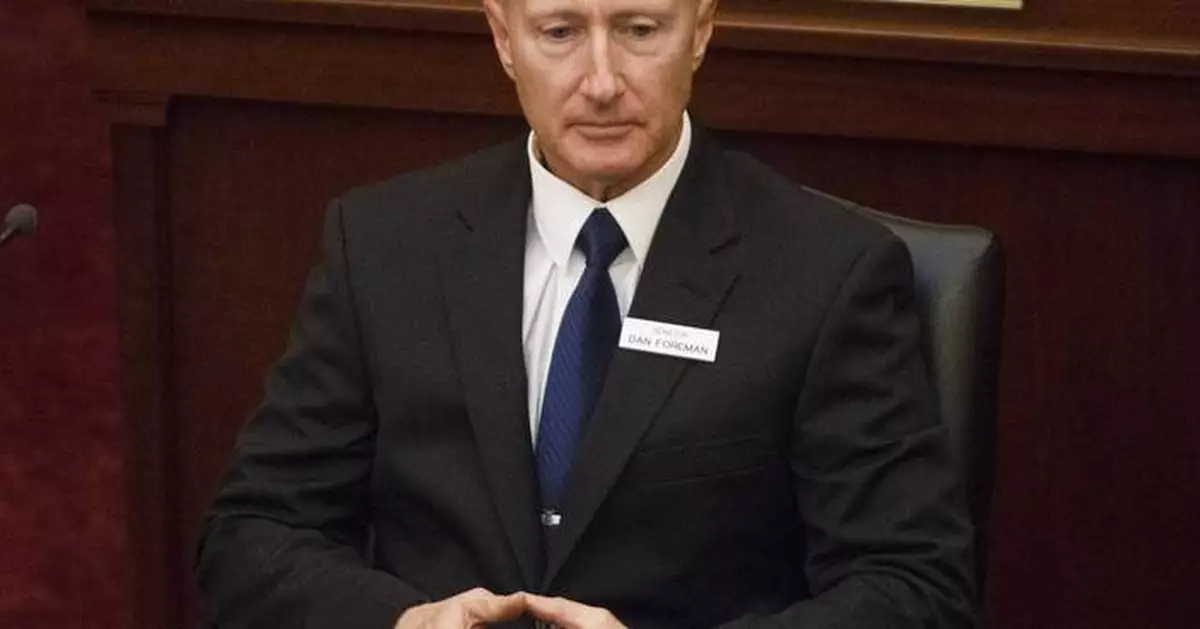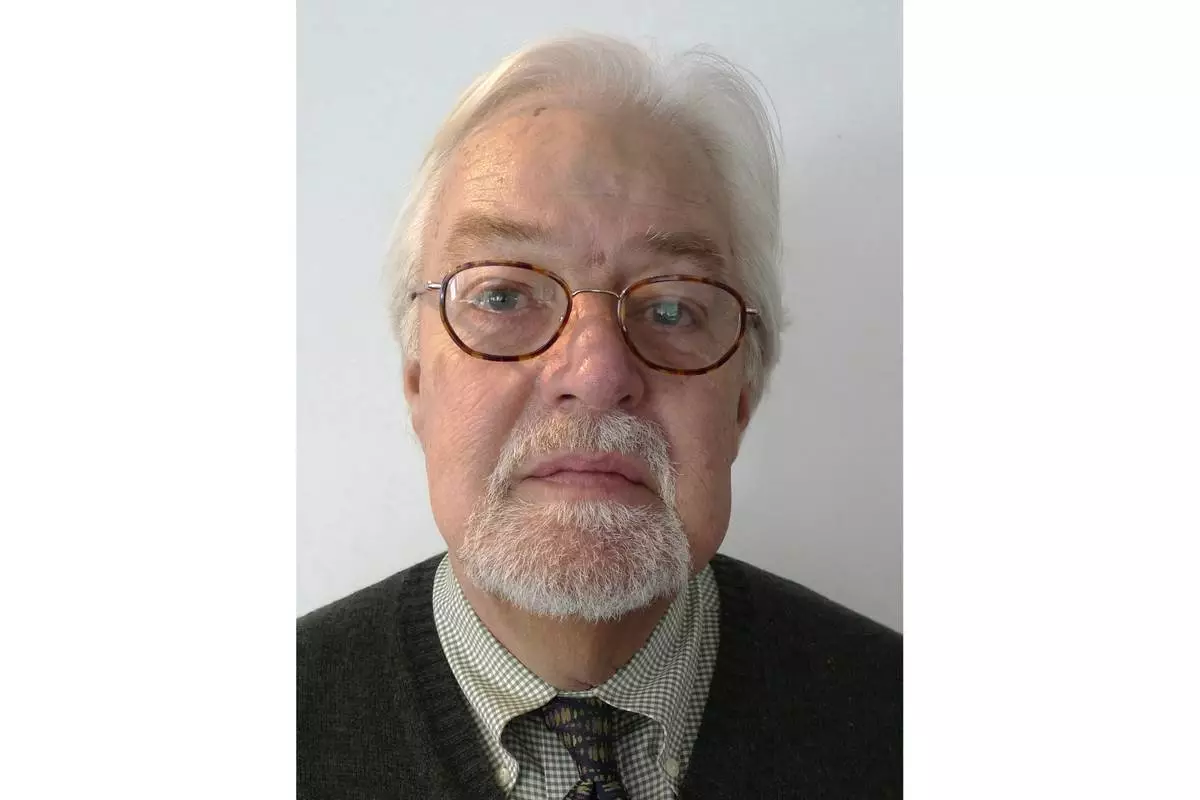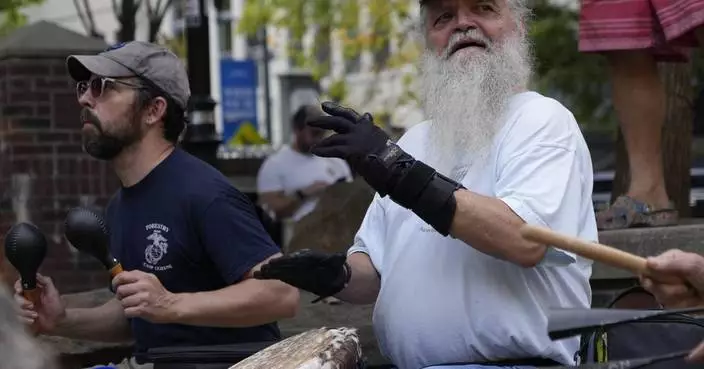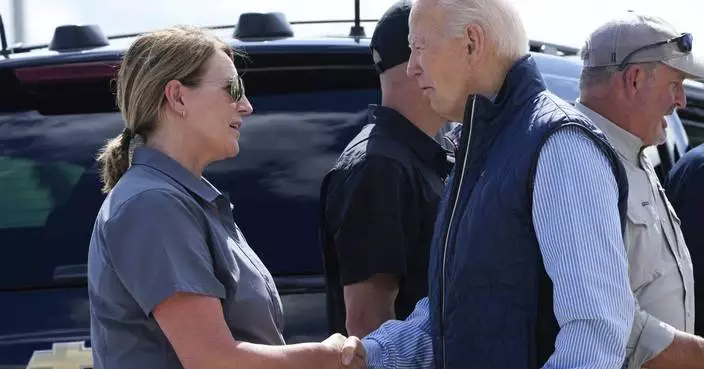KENDRICK, Idaho (AP) — Tensions rose during a bipartisan forum this week after an audience question about discrimination reportedly led an Idaho state senator to angrily tell a Native American candidate to “go back where you came from.”
Republican Sen. Dan Foreman left the event early after the outburst and later denied making any racist comments in a Facebook post. He did not respond to a voice message from The Associated Press seeking comment.
Trish Carter-Goodheart, a Democratic candidate for the House District 6 seat and member of the Nez Perce Tribe, said the blowup left her shaken and thinking about security needs for future public events. It also forced some tough conversations with her two young children, Avery and Lavender, who were in attendance.
“Having conversations about racism with an 8-year-old and a 5-year-old is not something me and my husband Dane were prepared for,” Carter-Goodheart said Friday. “They've never seen a grown adult man have a meltdown like that. They were scared. I was scared.”
The event was held by Democratic and Republican precinct committee members from the small north-Idaho town of Kendrick on Monday night, The Lewiston Tribune reported. It was for House and Senate candidates from the local district, including Foreman; his Democratic opponent, Julia Parker: Republican Rep. Lori McCann; and her Democratic opponent, Carter-Goodheart.
About an hour into the event, someone asked a question about a state bill addressing discrimination. The candidates were each given two minutes to answer, and when it was Carter-Goodheart's turn, she pushed back on earlier comments that suggested discrimination is not a major issue in Idaho.
She said state hate crime laws are weak, and noted that the neo-nazi group Aryan Nations made northern Idaho its home base for many years. She also talked about being the only candidate there who was a person of color.
“I pointed out that just because someone hasn’t personally experienced discrimination doesn’t mean it’s not happening,” she said. “I was making my statement, and then he shot up out of his seat and said, 'I’m so sick of your liberal (expletive). Why don't you go back to where you came from?'”
The Nez Perce Tribe has lived on the Columbia River Plateau in the Pacific Northwest for more than 11,500 years, including the area where Kendrick is located. The northern edge of its reservation, while only a small fraction of the tribe's historical territory, is less than 10 miles (16 kilometers) from the Veterans of Foreign Wars hall where the forum was held.
“It was like slow motion,” Carter-Goodheart said. “I just remember thinking, ‘Go back to where you came from’? That's within miles of where this forum is taking place. We have literal plots of land that are being leased out to family farms nearby.”
In his Facebook post, Foreman called the incident a “quintessential display of race-baiting” and said the Democratic attendees made personal attacks and “proclaimed Idaho to be a racist state.”
“Well, here is a news flash for the lefties out there. There is no systemic racism in America or Idaho,” Foreman said. “Idaho is a great state — the best in the Union!”
He then added an attack on supporters of abortion rights, saying: “And furthermore, it is immoral and against the law of God to kill unborn babies in the womb. You do not have any right to murder the unborn. There is no such thing as your self-proclaimed ‘Women’s Reproductive Rights.’ There is no such body of rights in the state or federal constitutions. And we don’t do designer rights in Idaho.”
During the exchange at the forum, Parker and McCann both said, Foreman stood up and yelled after Carter-Goodheart's response.
“I stood up and faced (Foreman) and tried to defuse what was going on,” Parker said.
McCann said Carter-Goodheart's description of the incident matched her own recollection.
“Her statement is accurate,” McCann told the Tribune. “(Carter-Goodheart) leaned over to me and said, ‘Where am I supposed to go?’”
The event continued for about 20 minutes after Foreman left. Carter-Goodheart said she found herself watching the only door, worried he would come back, and the female candidates checked on each other later.
“I really appreciate that about the people who are running, specifically Lori McCann,” she said. “She's my elder and I appreciate her and her commitment to our community. We do have a big difference in our values and what we want to do for our communities, but she checked on me and I checked on her, and that was the right thing to do.”
More candidate forums are planned in coming weeks, Carter-Goodheart said. Organizers for an upcoming League of Women Voters event emailed Carter-Goodheart on Friday to say police would be there as a precaution, she said, and the Idaho Secretary of State's Office offered guidance about security measures her campaign can pay for.
“We've been told, you know, it's not a bad idea to get security,” she said. “And we need to have honest discussions about race and discrimination and the inequalities and disparities that exist not only in Idaho but across the country.”
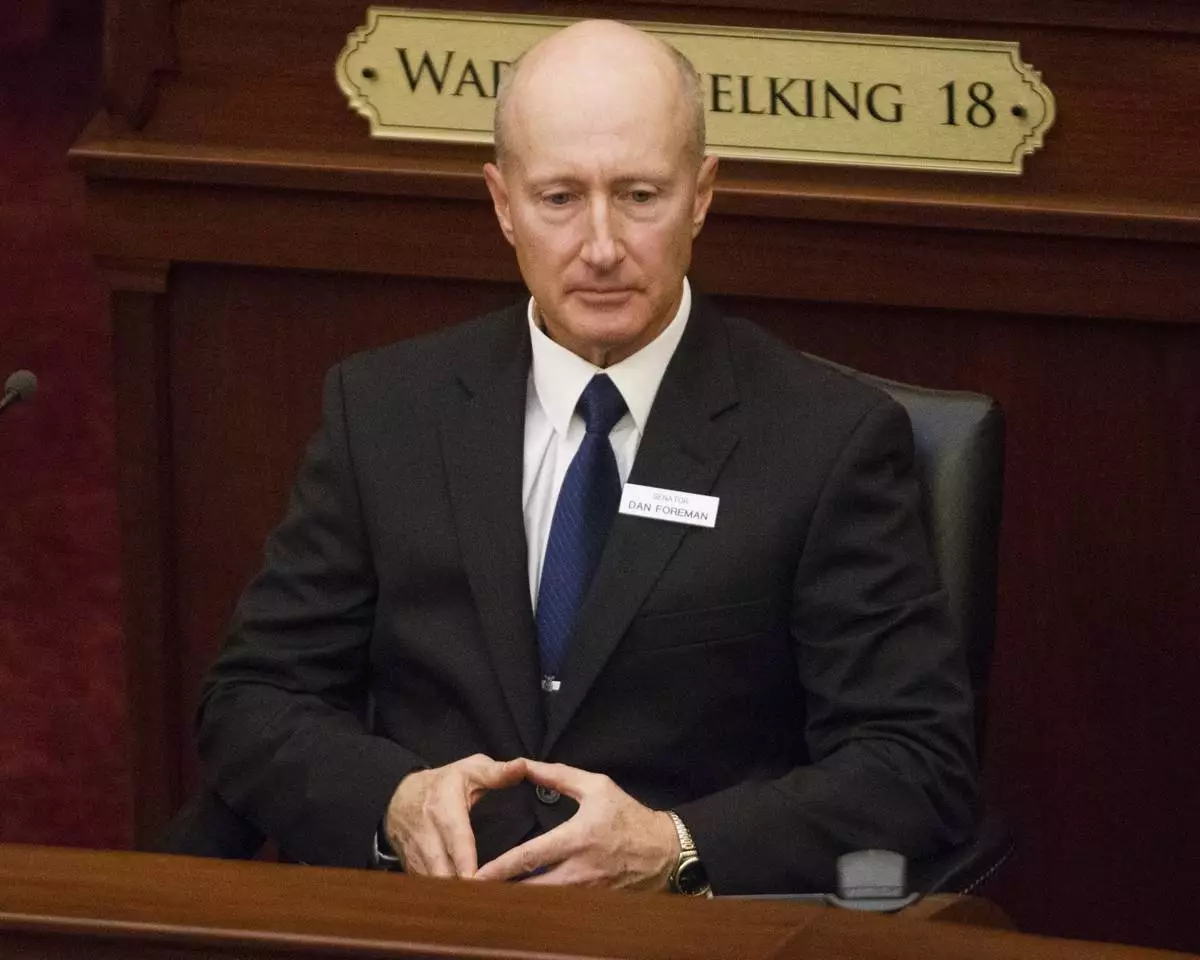
FILE - Idaho Sen. Dan Foreman, R-Moscow, waits for the State of the State address inside the house chambers at the state Capitol building, on Jan. 9, 2017 in Boise, Idaho. (AP Photo/Otto Kitsinger, File)


